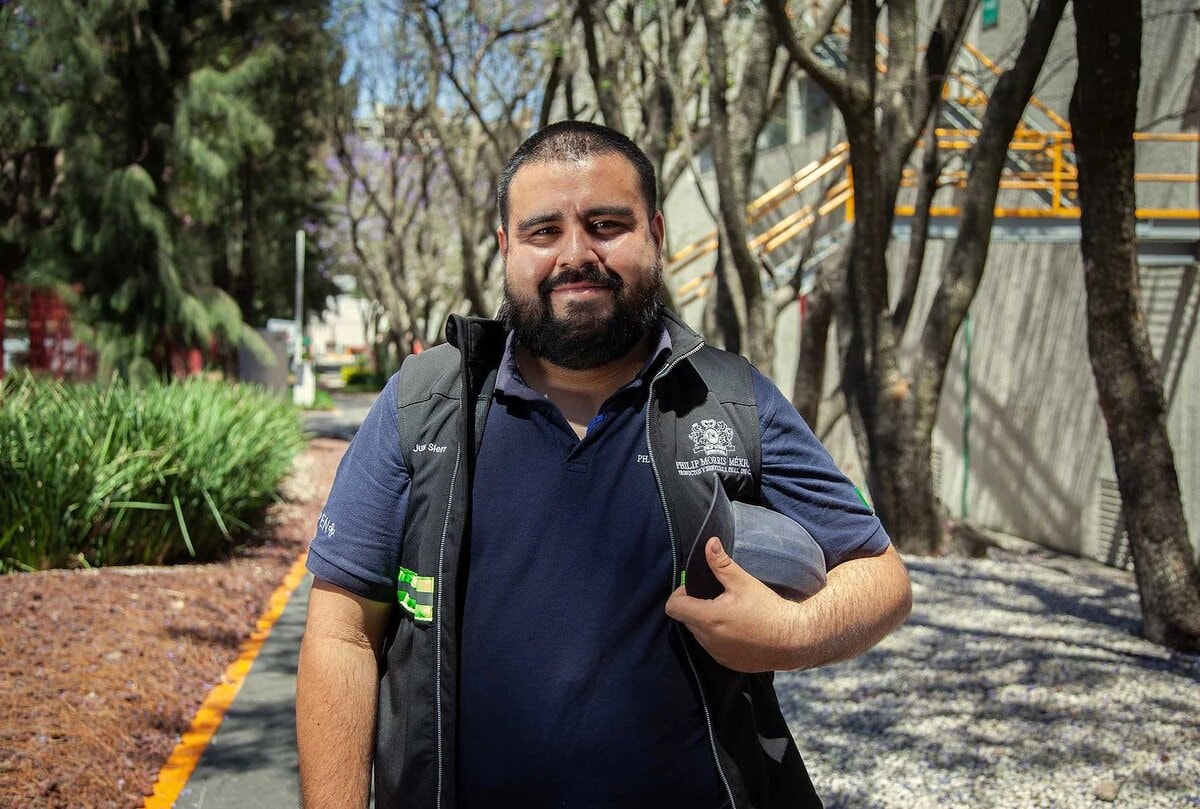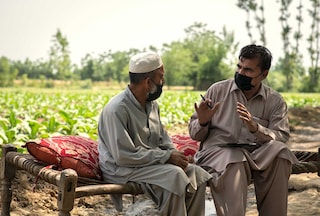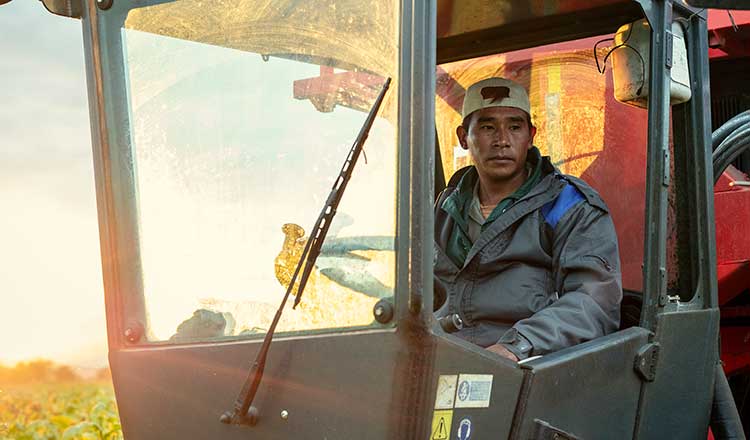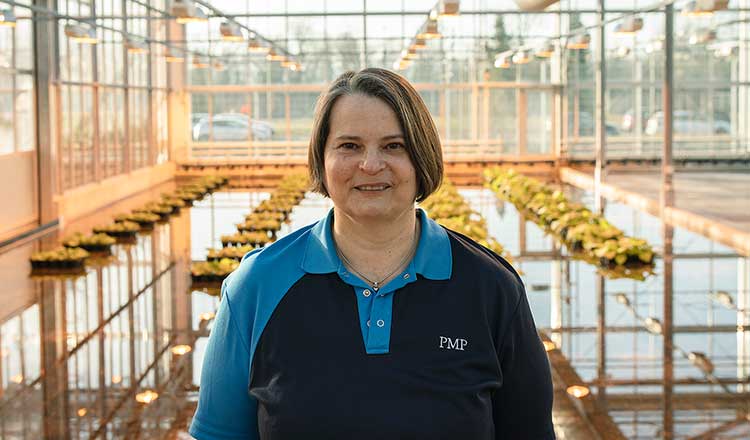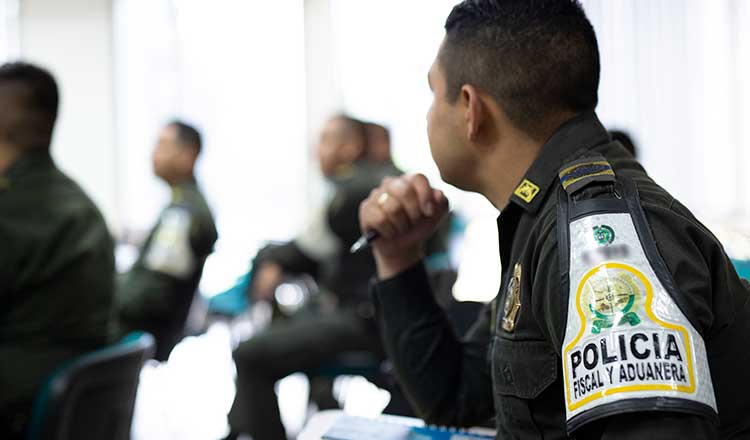Impact of COVID-19 on our activities in 2020
Implementing our Human Rights Commitment
PMI’s Human Rights Commitment (HRC) is the cornerstone of our human rights strategy and commits us to managing our work in accordance with the United Nations Guiding Principles on Business and Human Rights (UNGPs). Our HRC requires us to avoid, mitigate, and remediate any human rights risks and impacts that may arise across our operations and value chain.
The implementation of our HRC is focused on establishing the right controls throughout our processes and practices. Human rights considerations are included in our Code of Conduct and its accompanying set of policies, which apply to all PMI employees and reflect our core values of a culture of honesty, respect, and fairness. Those policies govern our day-to-day operations and enable us to implement and safeguard our HRC. Our policies cover risk areas such as environment, health, safety and security, supply chain management, responsible marketing and sales, workplace and labor practices, privacy protection, and anti-bribery.
In early 2021, PMI also released internally an updated Marketing Code for combusted tobacco products, as well as a new, separate Marketing Code for non-combusted alternatives that codifies and elaborates the principles related to preventing youth access.
A complex global supply chain brings potential human rights risks that we need to understand, manage, and continuously address. Our RSP and GAP guide our work to safeguard human rights throughout our supply chain.
In this chapter
- Impact of COVID-19
- Implementing our Human Rights Commitment
- Raising awareness among employees
- Identifying human rights risks and issues
- Assessing human rights impacts
- Grievance mechanisms
- Next steps

Respect for human rights - topic overview
read moreRespect for Human Rights is integral to our approach to security worldwide. We work to ensure our business practices reflect the values and principles adopted by PMI and the international community. Training and awareness among our own team is an ongoing priority in this journey, in addition to holding our key security provider partners accountable.
Raising awareness among employees
Embedding an ethos of respect for human rights in our corporate culture starts with awareness-raising and training.
In November last year, we launched a revamped e-learning to give our employees a practical understanding of human rights risks and the expectation for PMI’s HRC to be embedded throughout our operations and value chain. We developed the training in collaboration with an external expert organization, and its various modules align with our most salient risks by covering child labor, forced labor, freedom of association, and environmental stewardship. The e-learning seeks to explain what human rights are, how they relate to both PMI and each employee, and the role of employees in helping safeguard them.
We made the e-learning available to all employees and have integrated it into existing learning frameworks of certain business functions, such as Operations and External Affairs. In some cases, it was rolled out as a mandatory requirement for priority teams, such as Security. By year-end, all Security employees had completed the e-learning.
We also continued to provide targeted human rights training tailored to the regional and market teams within our Security function. We partner with the International Code of Conduct Association (ICoCA), a multi-stakeholder initiative formed in 2013 to ensure that providers of private security services respect human rights and humanitarian law. ICoCA delivered focused training sessions on human rights to all security regional and country heads. With this, in 2020 we covered 100 percent of our global security personnel (over 160 employees in total).
Human rights topics are also covered by other compliance training related to our Guidebook for Success and its accompanying set of P&P, such as our employment policy and our health, safety, and environment policies. They are also a key component of various corporate training programs, such as those to equip supervisors with appropriate management skills or to sensitize talent acquisition teams to discrimination.
With regard to our tobacco supply chain, we reviewed training materials and delivery methods of our ALP program in 2020. We began revamping our materials and developing a learning framework for ALP professionals and field technicians around the world, with guidance from our strategic partner Verité.
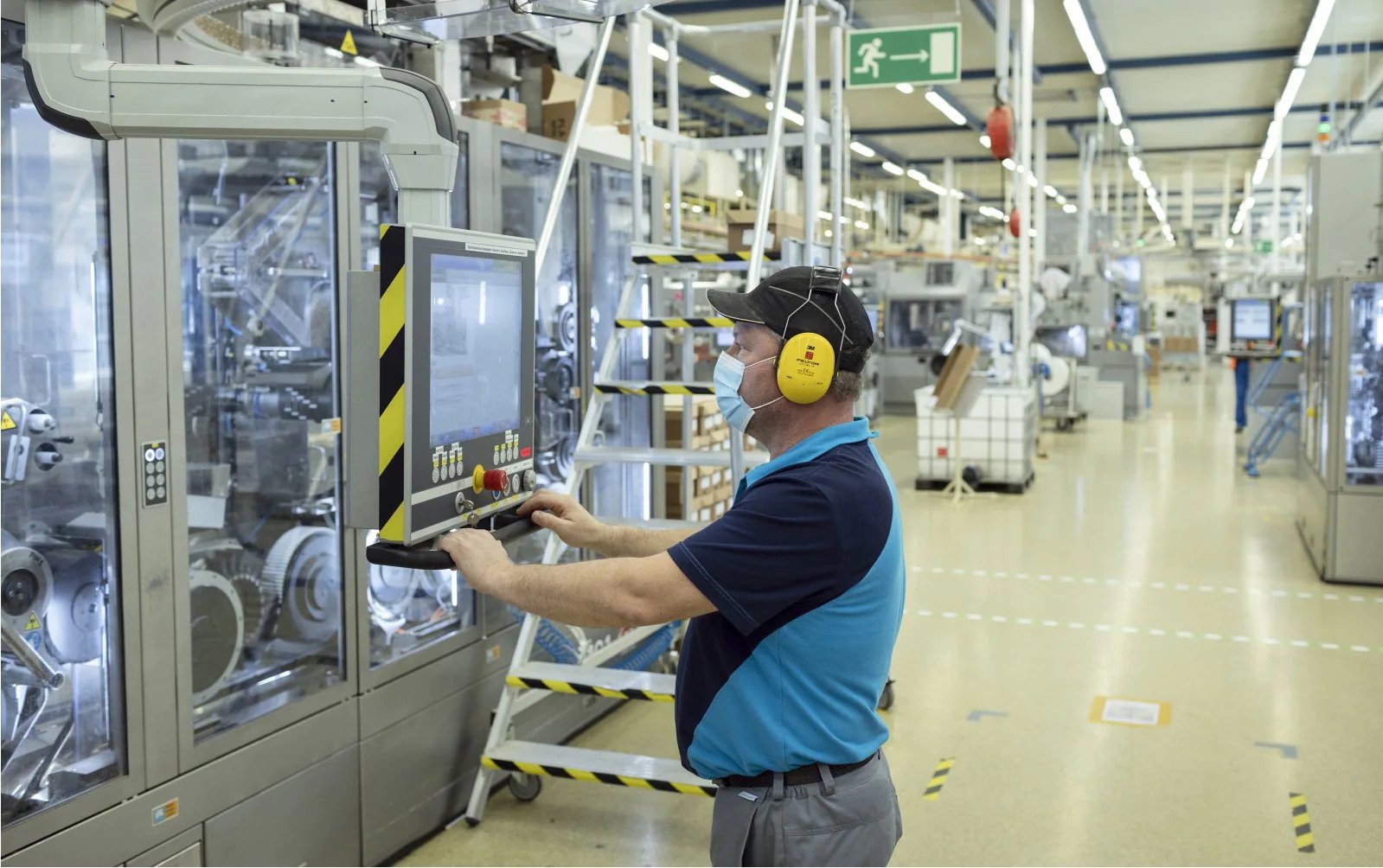
Case study
Conducting a human rights impact assessment in Russia remotely
Identifying human rights risks and issues
Our due diligence process is embedded in our approach to risk management across our value chain. Human rights risks are incorporated into our overall integrated risk assessment, our compliance program, our supplier due diligence and evaluation processes, and our ALP monitoring and remediation system deployed on the tobacco farms contracted by PMI and our suppliers.
In addition, we periodically conduct human rights risk assessments to proactively identify and mitigate potential adverse human rights impacts across our value chain.
In 2020, we updated our global human rights risk assessment (saliency mapping) to account for the rapid pace of our business transformation and our evolving supply chain, as well as for external trends such as the COVID-19 pandemic and heightened concerns around diversity, equity, inclusion, equality, and racial justice. These updates focused on key groups of rights-holders who may be impacted by our activities: Consumers, employees and contractors, suppliers and supply chain workers, and communities. Our review broadly confirmed PMI’s salient risks (before mitigation).
Salient risks include the reduction of products’ health risk and, in the markets where our products are sold, risks related to the use of our products by youth. The review also highlighted risks related to health and safety, working hours and wages, and diversity, equality, and inclusion in our operations. Risks of child labor, forced labor, and freedom of association were mentioned as more relevant for our supply chain. Environmental risks resulting from our activities and supply chain footprint, as well as risks related to conflict minerals, were mentioned as potential risks for the communities where we operate. The visual on the right shows these risks and directs to the relevant sections within this report that explain how PMI mitigates the identified risks.
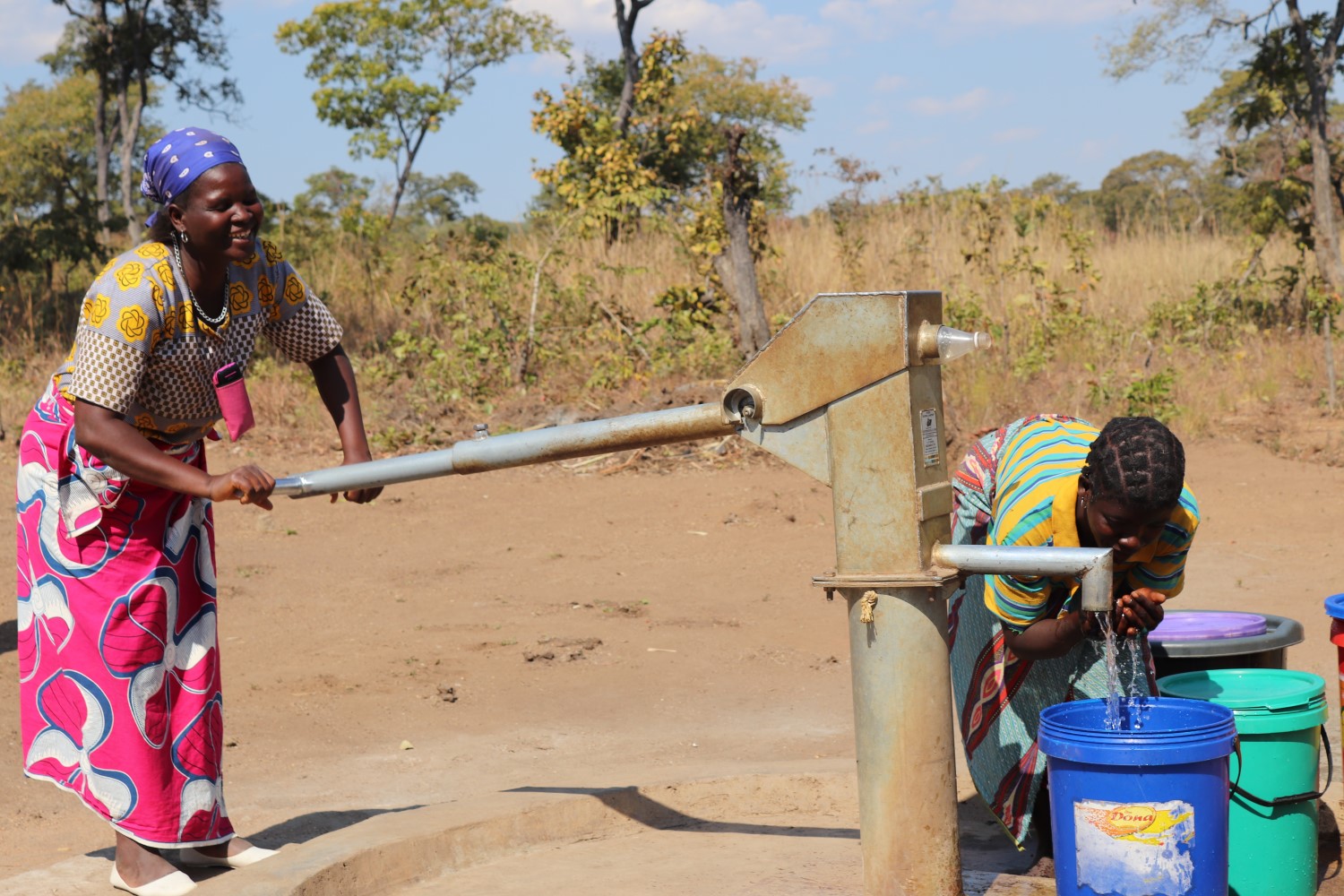
Case study
Assessing human rights impacts in our tobacco supply chain in Mozambique
Assessing human rights impacts
To strengthen our due diligence framework and proactively identify risks and mitigate potential adverse impacts in our operations and value chain, we aim to conduct human rights impact assessments (HRIAs) in the 10 highest-risk countries in which we operate by 2025. Our HRIAs are carried out by independent expert organizations. The list of high-risk countries is determined—and periodically reviewed—based on PMI’s footprint (e.g., presence of manufacturing operations, type of supply chain) and the country’s human rights risk profile, as determined by internationally recognized indicators such as Heidelberg Conflict Barometer, Freedom House Freedom of the World Index, and U.S. Trafficking in Persons Report and Transparency International.
These assessments follow a formal process and are conducted in accordance with the UNGPs. After each HRIA, the external expert organization presents its findings and suggests ways to address issues identified. The report is shared with the corresponding market leadership team, who develop a time-bound action plan in collaboration with the relevant corporate functions. The action plan assigns responsibilities for implementation and progress measurement at the local level. Learnings from an individual market HRIA are shared globally, where applicable.
We apply substantial focus to the depth and scope of each assessment and leverage learnings from each exercise to further strengthen our procedures. Following our pilot project in Mexico in 2018 and the 2019 exercise in the Philippines, we conducted HRIAs in Mozambique and in Russia in 2020, with different approaches. Findings reflect the unique range of human rights issues that arise in the context of any individual market.
Action plans: Monitoring implementation
We monitor action plans that have been developed following our previous HRIAs. The first layer of monitoring takes place at market level, where cross-functional teams are responsible for the implementation of the established action plans. In addition to local checks, biannual status updates sessions with representatives from relevant central functions (mainly sustainability, operations, people & culture, and legal) are also taking place. Progress, as well as delays and potential challenges, are also discussed. Success is measured against the implementation of action plans. Actions can also lead to additional positive impacts beyond what was originally intended. One representative example is our work in Mexico where, within two years and as a result of our 2018 HRIA, we transformed our distribution model from being exclusively dependent on drivers, to mostly transporting our products by train. This change did not only manage to successfully address security concerns and the related safety issue raised due to excessive overtime but is also expected to contribute to significant financial and environmental benefits. Concretely, it is estimated to represent a reduction of 75 percent of security spend and 66 percent reduction of carbon emissions. More information on the 2018 pilot assessment in Mexico is available here.
Following our HRIA in the Philippines in 2019, various actions have been undertaken to address concerns among sales teams—especially women—about risks to their personal safety, working hours, lack of compliance with legal age limits at small neighborhood stores, the wages of security and janitorial contractors, and the use of protective equipment by tobacco farmers and workers. Read more about it here.
Key learnings from our HRIAs
Each HRIA we have conducted to date has proven highly valuable. The structured methodology provides an important evaluation of how our Commitment to Human Rights and other policy instruments are implemented on the ground. The HRIAs have raised awareness among our organization on human rights at the country level and further developed employee competencies and skills to identify and address potential issues. They have shed light on local challenges and triggered targeted remediation interventions. In parallel, local learnings have allowed us to enhance our global understanding and tailor our management of human rights impacts accordingly. For instance, they informed the content of the e-learning we launched globally in 2020. The findings and learnings from the HRIAs were also considered in our global human rights saliency mapping, which led to the establishment of PMI’s 11 salient human rights risks (described above).
Human rights considerations are embedded in key business decision-making at PMI. For instance, findings from HRIAs in Mexico and the Philippines were key inputs into the decision to consolidate security service providers and develop standard human rights expectations for these providers, in partnership with ICoCA.
We acknowledge that we cannot analyze the complexities of human rights issues in every corner of our operations straightaway, but we use our learning to continually deepen our understanding and strengthen our processes. The journey to turn inherent risks into managed risks is ongoing, and we are encouraged by the progress made so far—for instance, in working toward alignment of working hours with ILO standards, providing above-average salaries, and maintaining our strong compliance and speaking-up culture.
Assessing impacts in medium- and low-risk countries
To strengthen our due diligence framework, we worked with our consultant Article One in 2020 to develop a “self-service” HRIA process and toolkit that will enable our medium- and low-risk country affiliates to identify and address salient human rights risks in their markets. The toolkit will be available to these affiliates and will feature a set of self-service tools, embedded instructions, and additional resources that will allow local experts to conduct an HRIA for their market with external expert review and support.
Specifically, the HRIA toolkit will include:
- A human rights saliency mapping tool to identify and prioritize risks
- A gap analysis tool to assess existing mitigation measures
- A stakeholder mapping and prioritization tool
- Sample interview guides for internal and external engagement
- Potential sources for additional desktop research
- Assessment report templates
- Embedded instructions for each tool and process step
The toolkit aligns with the UNGPs and other key international human rights standards such as relevant ILO conventions. We plan to pilot it in three countries in 2021, incorporate and address insights and feedback from the pilot markets, and roll it out globally in 2022. In parallel, we will build the relevant governance to ensure support and appropriate consolidation of the countries’ results.
Performance highlights
At the International Code of Conduct Association (ICoCA) we value the leadership role PMI are taking to institutionalize human rights due diligence throughout their private security supply chain. By partnering with ICoCA and requiring their private security providers be Members or Affiliates of the Association, PMI are paving the way for others to follow, showing how responsible private security procurement practices that respect human rights are good for business because it’s good for the communities in which they operate.
Grievance mechanisms
Providing access to effective grievance mechanisms in our operations and across our supply chain is a key requirement of the UNGPs and a core element of our due diligence approach. Internally, we maintain clear policies, run regular training, and work to ensure that robust processes are in place to encourage employees to speak up if things don’t seem right or can be improved. Read more on Business Integrity.
The same applies to our supply chain, where we believe everyone should have a voice and be able to seek help. In our RSP, we specifically ask suppliers to provide their workers with easily accessible ways to raise concerns, free from risk of retaliation. Read more on Sustainable supply chain management.
In our tobacco supply chain, our ALP Code states that “Workers should have access to a fair, transparent, and anonymous grievance mechanism.” Such mechanisms are available in some countries where we source tobacco; and concerns can also be raised with field technicians at any time. Read more on Socioeconomic well-being of tobacco-farming communities.
Next steps
The rollout of our key diagnostic tool—the HRIA—will continue in 2021. Depending on the restrictions due to COVID-19, we are assessing and will re-evaluate our options. We plan to conduct at least one HRIA in a select high-risk country, which should deliver an in-depth analysis and robust action plan.
We will leverage learnings from our virtual assessment conducted in Russia in 2020 to potentially replicate the format should conditions require it.
We plan to pilot our HRIA self-assessment toolkit in three medium- or low-risk geographies in 2021 and gather insights to further inform our tools and processes before global rollout in 2022.
Our Human Rights Roadmap helped us establish strong foundations and a more structured approach in our work related to human rights. The maturity acquired so far helped us establish ambitious targets across all functions to be delivered by 2025. Although the focus will be to achieve these targets, we will continue listening to our stakeholders, learning from our current control mechanisms, reinforcing our due diligence and remediation processes, and staying up to speed with external and internal developments.
In this respect, we are currently conducting a human rights saliency mapping for our electronics supply chain to identify potential risks and address them proactively. We will share findings and actions in our next integrated report.
In addition to this focused assessment, we acknowledge that the climate crisis threatens livelihoods, in particular of the most vulnerable people around the world. Recognizing the importance of identifying synergies and integrating efforts to mitigate climate change and human rights impacts throughout our business activities, we decided to explore how the climate crisis and human rights relate to each other, and the role a company can play in addressing the interconnected challenges they present. This year, we will publish a white paper analyzing this topic.
We will also continue raising awareness on the topic of human rights and further rolling out our e-learning across our organization.

